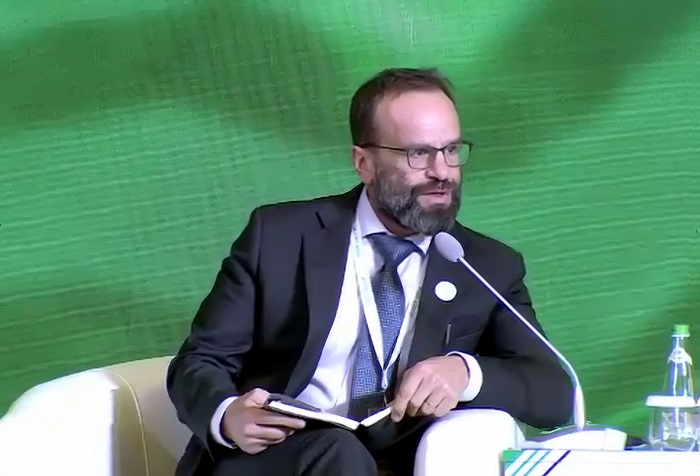The European Bank for Reconstruction and Development (EBRD) plans to develop a new five-year strategy for Turkmenistan, which will pay special attention to the development of the country’s export potential. This was stated by Eric Livni, Head of the EBRD Representative Office in Turkmenistan, in an interview with the Neutral Turkmenistan newspaper.
The EBRD, being the largest investor in Central Asia, has been actively supporting the development of the private sector in the countries of the region since its foundation in 1991.
“In Turkmenistan, the EBRD stood at the origins of many private companies in various sectors of the economy: from agriculture to food production and furniture, from construction and packaging materials to logistics and transport services. We work with Turkmen banks, help them in the development of modern financial instruments, including for international trade operations, and provide foreign currency financing for lending to small businesses,” Livni said.
To date, the EBRD has invested over €333 million in 87 projects in Turkmenistan, focusing on supporting industrial production and small and medium-sized businesses. The products of Turkmen companies cooperating with the EBRD successfully compete with imported analogues in the domestic market and increasingly enter the markets of neighboring countries. Currently, the EBRD’s portfolio in Turkmenistan includes 15 projects with a total value of €22 million.
In the new strategy, the EBRD plans to use all available tools to stimulate exports from Turkmenistan.
“To do this, we will try to use the entire arsenal of funds at our disposal – direct lending to private businesses aimed at introducing modern technologies, the creation of appropriate banking products together with Turkmen financial institutions, including both lending and non-financial services (i.e., providing advice to enter foreign markets). A separate area is the financing of foreign trade operations,” Livni explained.
In addition to supporting the private sector, the EBRD is also interested in developing Turkmenistan’s infrastructure, particularly in water resources management, renewable energy and transport.
As for transport, the Bank sees the most promising development of the Trans-Caspian Transport Corridor. This corridor has the potential to become a crucial alternative route for cargo transportation between Europe and Asia, benefiting Turkmenistan and other regional countries.
“The Bank is ready to invest in the infrastructure of the Trans-Caspian corridor, as well as work to reduce the so-called “soft” barriers to the movement of goods and people along this corridor, for example, through the harmonization and digitalization of customs procedures,” said the head of the EBRD representative office.
The EBRD’s focus on renewable energy and water resource management aligns with its broader green agenda. Livni expressed the bank’s enthusiasm for assisting Turkmenistan in mitigating climate change, promoting energy and water efficiency, and developing green energy solutions.
To develop its new strategy, the EBRD will collaborate closely with Turkmen authorities. An interdepartmental working group will be established to facilitate this process.
The EBRD sees Turkmenistan’s significant potential and remains committed to supporting the country’s economic aspirations. ///nCa, 19 November 2024
